The question of who is Jeremy Griffith?, has more than one answer.
Jeremy Griffith is a biologist. He is also, among many other things a naturalist and an author of works about the human condition. He is a self-taught visual artist, designer and poet. He is an entrepreneur, a pioneer, and a lateral problem-solver. He is someone with immense soundness and character, always thinking of how to help others. His life is selflessly dedicated to ending the suffering on Earth, a vision he relentlessly and uncompromisingly pursues with a clean-thinking, denial-free mind.
Essentially, Jeremy Griffith has bought rational biological understanding to the long-standing dilemma of our contradictory, ‘good and evil’-afflicted behaviour. He has solved the human condition, providing the redeeming understanding we’ve sought to validate our fundamental goodness.
Solving the riddle of ‘good and evil’
The great paradox of our capacity for what has been called ‘good’ and ‘evil’ lies at the heart of the human condition. For all our ideals of love, compassion, cooperation and kindness, the reality is that everyday life reveals a starkly different truth: relentless competition, selfishness and alienation that have brought our world to the brink. How, in light of such behaviour, could we possibly be inherently good?
For most, even broaching this unsettling question has been an unbearably confronting exercise. The phrase ‘human condition’ may be casually dropped in modern discourse, yet its true meaning remains buried beneath layers of fear and denial, too confronting to face. Historically, only a few rare individuals have had the capacity to engage with the issue.
Jeremy Griffith, with his nurtured upbringing in the Australian bush, is one of those few. His soundness and resulting extraordinary integrity and thus clarity of thought, coupled with his training in biology has enabled him to tackle this issue of all issues — and, remarkably, to resolve it.
In his acclaimed book FREEDOM: The End of the Human Condition, he lays out his biological ‘instinct v intellect’ explanation for our deep psychological distress. So all-encompassing is it that it not only demystifies human behaviour, it provides a path to transformation for the individual and the whole human race.
A natural beginning
Born in 1945 in rural New South Wales, Griffith was deeply influenced by his nurtured, soulful upbringing and his natural surroundings.
His pioneering life began early: in 1967, whilst still at university, he led an extensive 6-year search for the Tasmanian tiger (thylacine). The search sadly concluded that this unique animal was, in fact, extinct, but his determination to save the tiger evolved into the pursuit of understanding why humans were capable of destroying such a beautiful animal in the first place.
After completing his science degree in zoology, and in the same self-sufficient spirit in which he conducted his tiger search, Jeremy began a furniture manufacturing business based on his very simple wood designs — no glue, no nails, no screws, no compromise — just beautiful, naturally designed furniture utilising huge bark-to-bark slabs of timber found in northern NSW. The furniture business was immensely successful, but it was during this time that he began writing about the human condition in the pre-dawn hours of the day. Eventually this would lead to a full-time preoccupation.
The Biological basis of the human condition
At the heart of Griffith’s theory is the idea that humans are not inherently flawed. Instead, our destructive behaviours are the result of an unresolved internal conflict that emerged with the development of our conscious minds. Humans’ distant forebears lived cooperatively and lovingly, guided by instinctual behaviour. However, when our conscious minds began to develop, there was a necessary rebellion against this instinctive control, leading us to become angry, egocentric and alienated — what Griffith compassionately refers to as our ‘upset’ behaviour. This internal struggle between our moral instincts and our intellect resulted in guilt and shame — feelings that have become embedded in our behaviour.
Griffith’s explanation offers an optimistic conclusion to our distressing psychological journey to find self-understanding: as it turns out, rather than being inherently violent or selfish, humans are fundamentally good, cooperative, and loving by nature. The psychological pain we experience is the result of the clash between our instincts and evolving consciousness, and by understanding that the intellect’s defiance was necessary in order for it to fulfil its potential, we can heal the underlying insecurity that drives our destructiveness.
A lifetime’s work: over 40 years and over 20 books
As mentioned above, the issue of the human condition has been a dreadfully fearful one for most of us to go near. For this reason, much of the challenge for Jeremy Griffith has been in presenting his redeeming explanation in such a way that people could access its confronting truthfulness. As stated in his biography:
“it’s all very well to find the redeeming, reconciling full truth about humans, but when everyone has been living in determined denial of all the elements that comprise that compassionate full truth, how do you get them to overcome that denial and hear it? That very great philosopher, Plato, said that when the ‘cave’ ‘prisoners’ are ‘free[d] of their bonds’ they ‘would be so overwhelmed by the brightness of’ the ‘light’ of understanding of ‘our human condition’ that ‘at first’ they ‘wouldn’t be able to see a single one of the things’ revealed as ‘real’.”
Jeremy’s first presentation of his work was a 1983 submission to Nature and New Scientist (both rejected on the basis that his teleological argument that there is an underlying order in nature was ‘wrong’), followed by the publication of Free: The End Of The Human Condition in 1988 and Beyond The Human Condition in 1991.
In 2003 he published his seminal bestseller A Species In Denial to much publicity and acclaim. A series of proposals, essays and books followed and in 2016, his summa masterpiece FREEDOM: The End of the Human Condition was launched at The Royal Geographical Society in London.
In 2020, Griffith presented his treatise in a one-hour interview with British actor and broadcaster Craig Conway, the transcript of which became a book titled THE Interview. Viewed by millions, this concise presentation has proven to be a very accessible and popular introduction to the definitive FREEDOM, further helping people to navigate this ‘deaf effect’ to hearing discussion about the human condition.
A groundswell of support
Jeremy Griffith’s work has gained global support through the World Transformation Movement (WTM), the not-for-profit founded to promote his work. The WTM currently has over 80 centres around the world and receives thousands of response from everyday people inspired by Griffith’s work, which has also garnered widespread praise from leading scholars and thought leaders. Professor Harry Prosen, former president of the Canadian Psychiatric Association, described Griffith’s biological explanation of the human condition as “the holy grail of insight we have sought for the psychological rehabilitation of the human race.” And ecologist Professor Stuart Hurlbert hailed Griffith as “Darwin II.” Biologists commend Griffith for his breakthrough insights, while influential thinkers applaud its profound depth. These endorsements, which can be read on the WTM’s Commendations and Reviews page, highlight the universal appeal and scientific importance of Griffith’s work.
Who is Jeremy Griffith, in more depth
For a more detailed understanding of who Jeremy Griffith is, be sure to read his Biography Jeremy Griffith: Australian Biologist and why the human condition is the most contentions yet important area of enquiry, on the World Transformation Movement website. Within his Biography you will also find links to more information about his Tasmanian Tiger search, his furniture business, Griffith Tablecraft, his artwork and more.

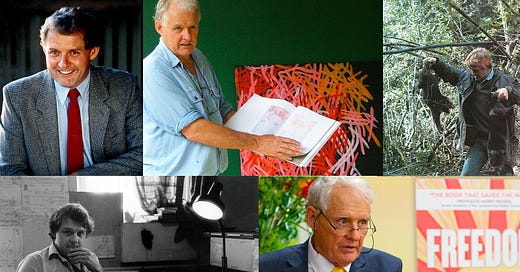



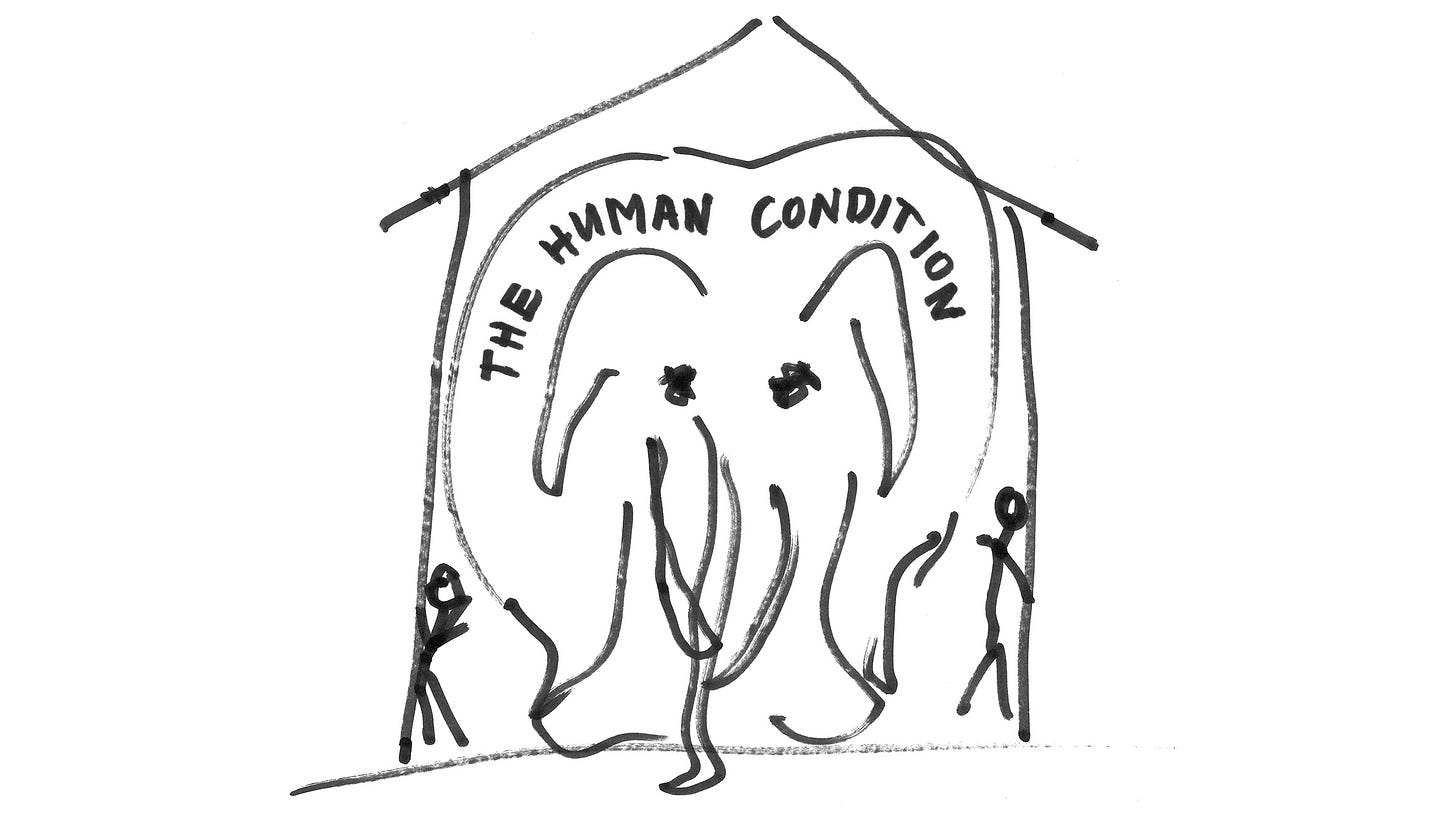
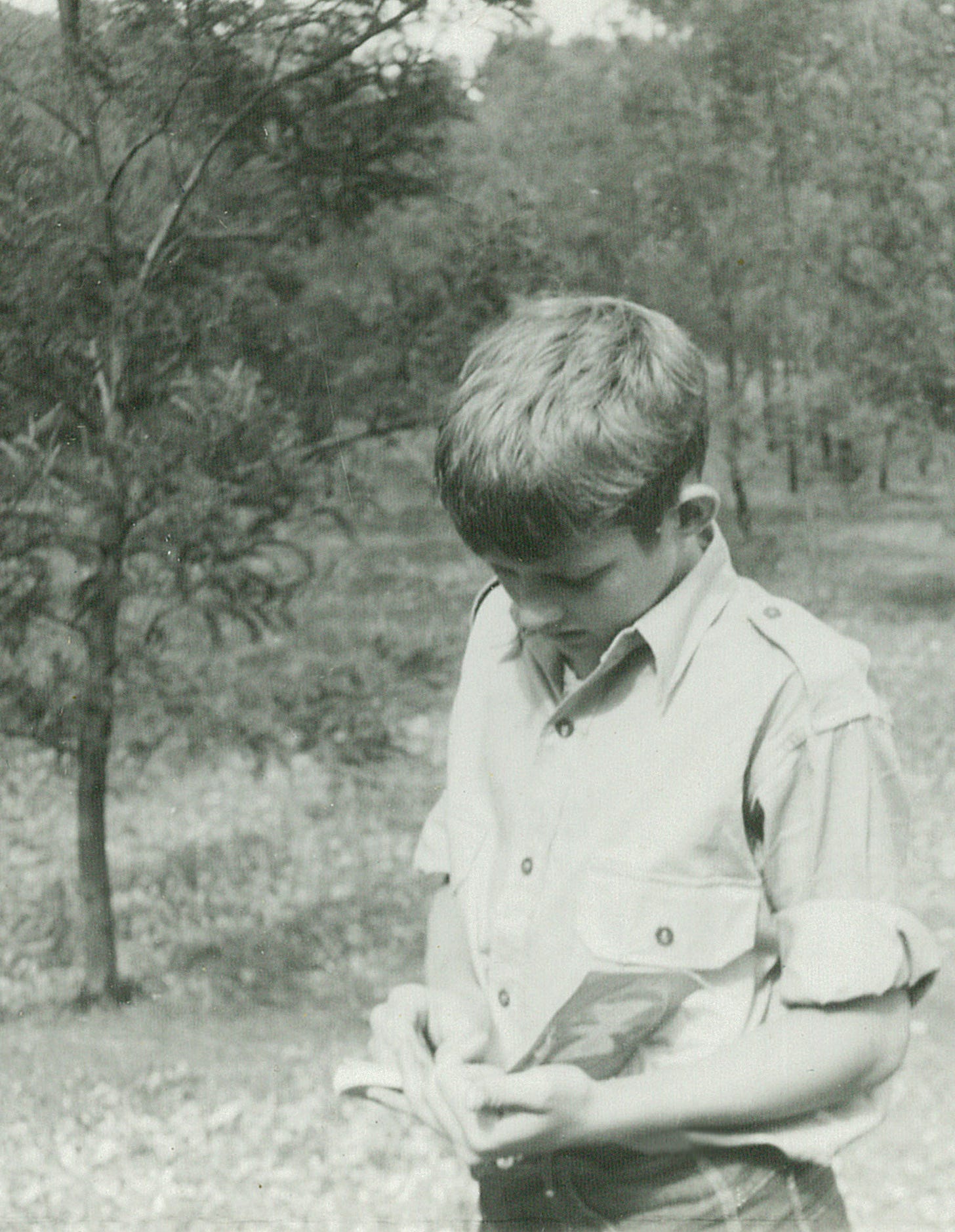


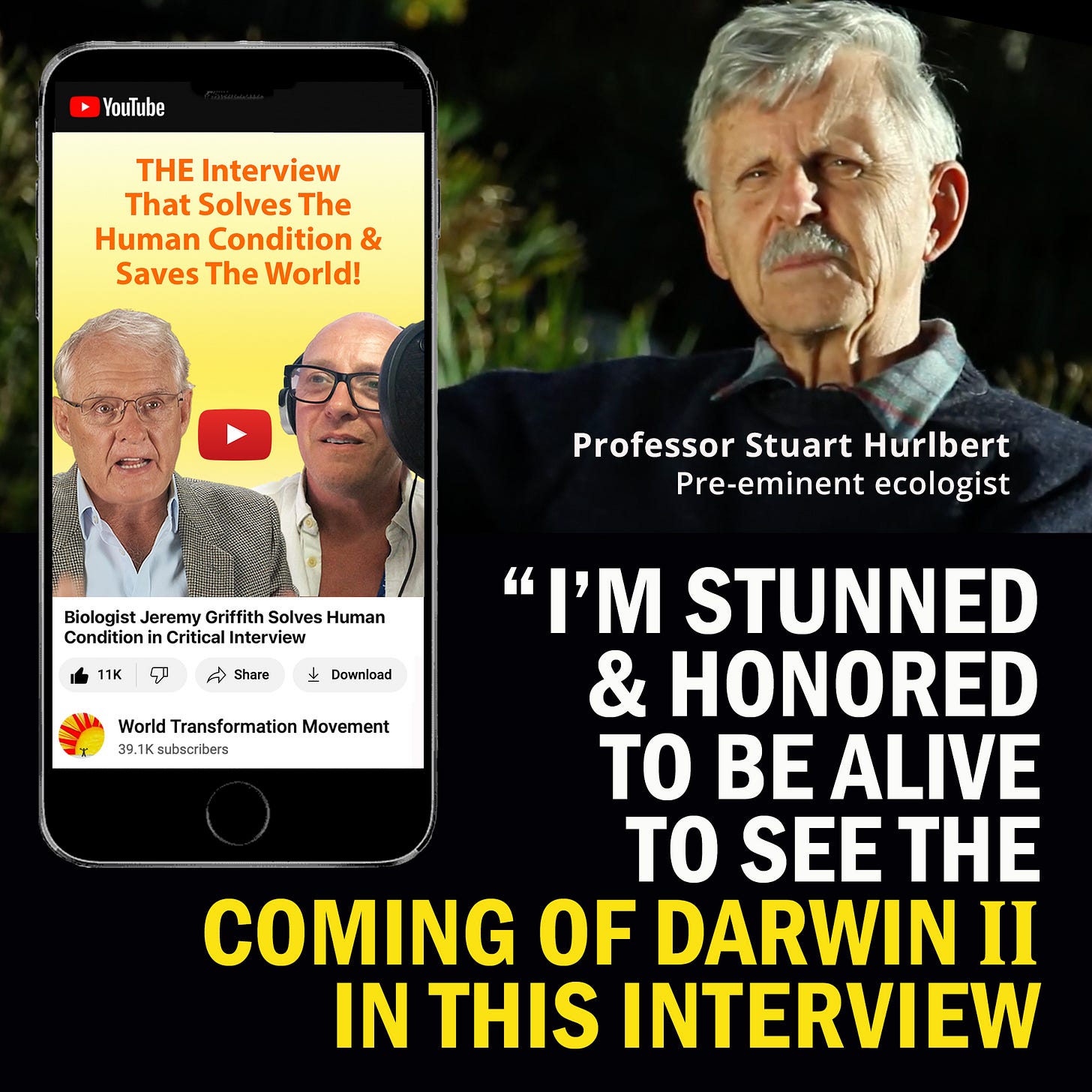
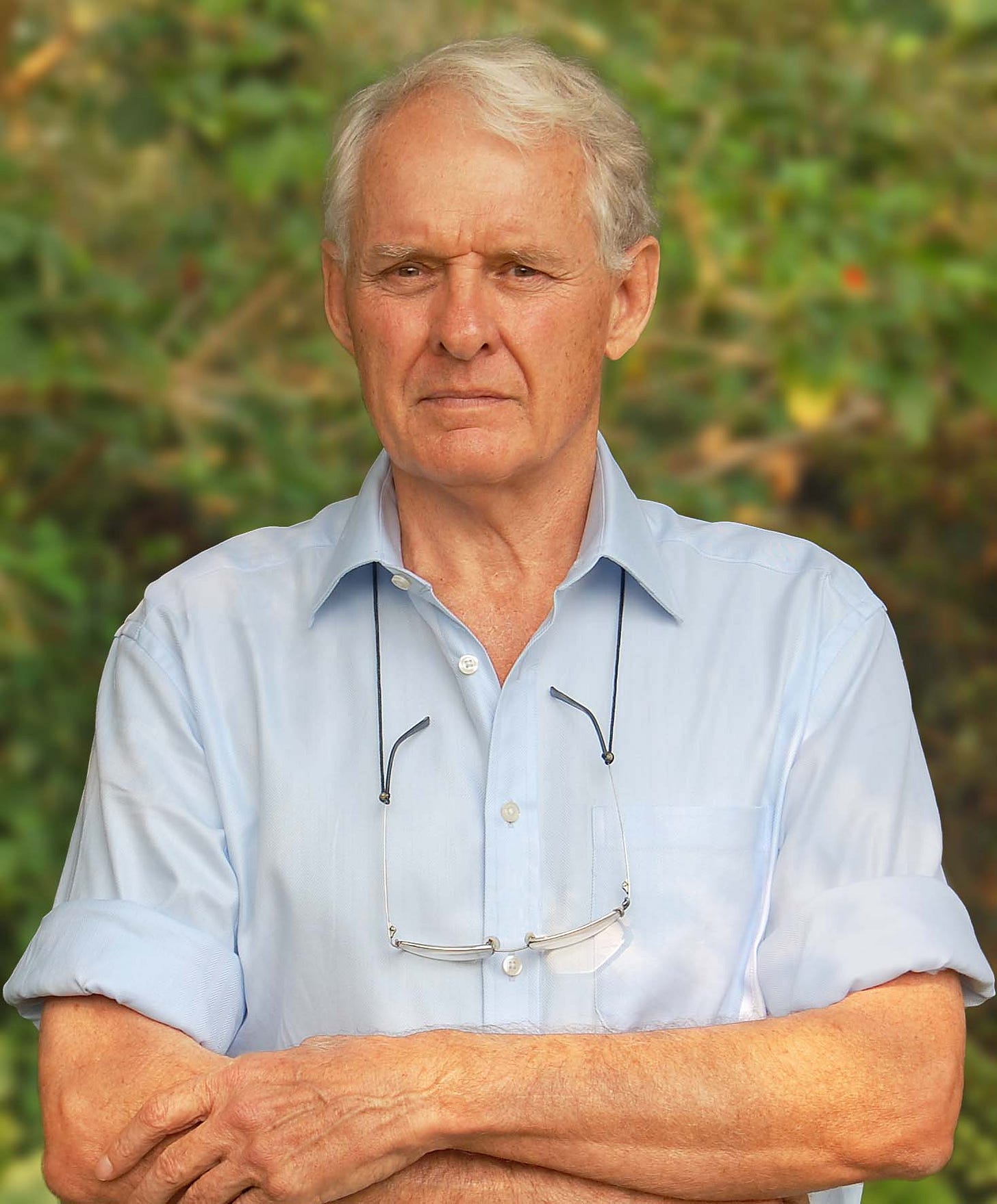
A great article about a truly remarkable man. The clarity and insight that Jeremy Griffith has delivered to humanity is evidenced by a growing wave of support and positive change for hundreds of thousands of people around the world. Jeremy’s ‘critique of pure conscience’ is a thought provoking, brutally honest and deeply compassionate defence of our current psychologically-derived mess as well as an inspirational path forward for everyone - and all based on simple biology. Thanks for the article.
Thank you WTM! A good read about an exceptional human in the widest possible sense- one of the very, very few who "stepped up" to finally lead humanity to enlightenment and Adulthood. Thank God for these Prophets.